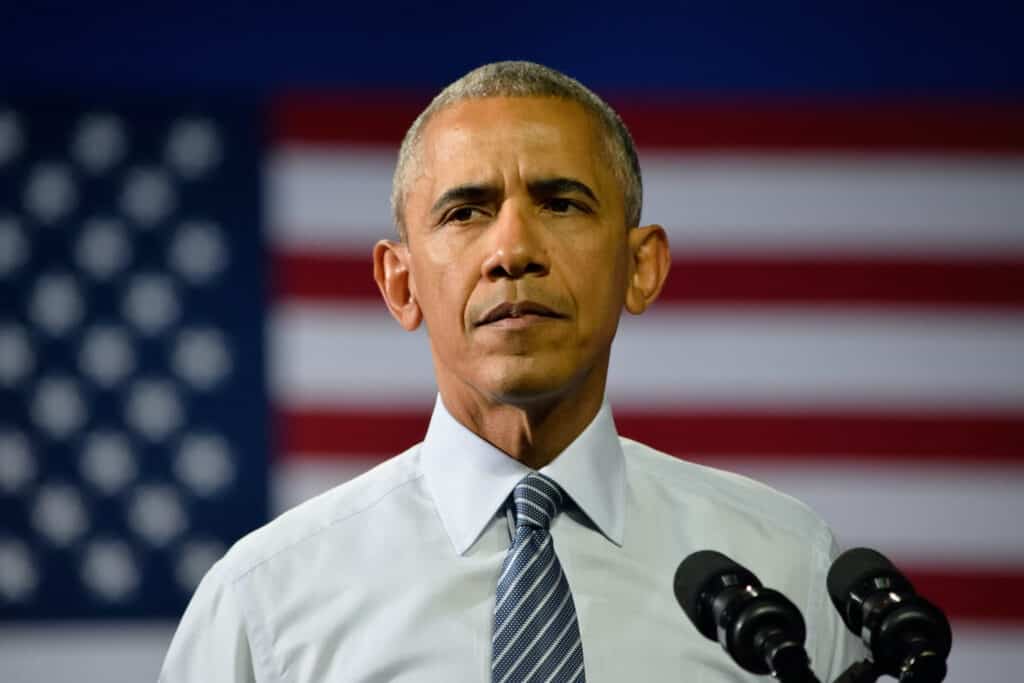Questions surrounding the economy in regards to future growth are almost always at the forefront of political conversation, both in and out of election periods. Looking back on the presidential career of Barack Obama, how many jobs did he help to create during his tenure?
Final reports on the number of jobs that Barack Obama created puts the number at around 12 million. Part of the reason these numbers were comparatively low was due to him taking office during a financial crisis.

Job growth and employment numbers are susceptible to a number of varying factors.
Simply comparing the statistics from two different administrations will often fail to accurately portray the true story, such as in the case of Obama where he was still attempting to recover from an economic disaster.
Comparing Job Growth
On a list of which presidents have had the greatest success in stimulating job growth, you won’t find Obama very near the top of the list. Nearest the top of said list, you’ll find the likes of Clinton, Roosevelt, and Reagan.
Naturally, the situation is a complicated and nuanced one.
In the case of President Clinton, the country was already experiencing healthy economic growth that allowed him to introduce the kinds of acts that would create new job opportunities in a burgeoning marketplace.
Roosevelt’s New Deal was the most successful, percentage-wise, for creating new jobs. His situation is also the most comparable to Obama’s situation in that they both faced devastating problems with the economy.
In Roosevelt’s case, it was the ending of the Great Depression. In Obama’s, it was the Great Recession.
The Great Recession
When Obama started his first presidential term, he was looking down the barrel of the worst financial crisis the country had experienced in over 70 years.
The housing bubble had just burst a few years prior, leaving the banks and the economy in complete disarray.
If you were seeking a mortgage or funding for your business, you were out of luck.
This, in combination with other problems in the financial system of the country, led to a period of time that earned itself the title of the “Great Recession”.
Obama had this disaster immediately handed off to him by his predecessor, and he was left with the seemingly insurmountable task of overcoming the downward economic trend that the country was facing.
Providing Stimulus
Obama’s answer, and the first act that he would have signed into law, was the ARRA, the American Recovery and Reinvestment Act of 2009.
Although the stimulus package came at a high debt cost, Obama succeeded in creating jobs, reducing the unemployment rate dramatically. There were multiple components of the bill that helped to accomplish this, almost all of which addressed the issues that had been caused by the Great Recession.
Obama had given the American people 7 million of the 12 million jobs he created thanks to the stimulus package, all by the end of 2012.
The most significant part about the number of jobs he created was the fact that he managed to do so in the face of a harsh economic climate, where it historically far harder to stimulate any kind of growth.
A lot of the jobs he created were thanks to investments in construction, improving infrastructure, and the efficiency of public buildings such as schools.
Saving Jobs
Looking through some statistics about the jobs that have been created during different presidential runs is a little bit misleading, especially when you start considering the fact that Obama didn’t only have to contend with creating new jobs but saving already existing jobs.
One of the sectors that had to be rescued out of the economic mire they had found themselves in was the auto industry, which had to be bailed out during the first few years of Obama’s presidency.
George Bush had already dumped an enormous amount of money into attempting to assist General Motors and Chrysler, auto manufacturers with a huge number of American employees on the payroll.
Unfortunately, due to the ongoing economic crisis, it still wasn’t enough.
Obama chose to funnel more money into the companies that were struggling the worst in that industry, effectively saving thousands upon thousands of jobs that may have otherwise been lost with any economical mismanagement.